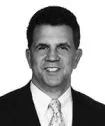In a decision that could have far reaching consequences in both the civil and criminal tax realms, on June 27th, the U.S. Supreme Court agreed to review the conviction of Carlo Marinello, who was found guilty of obstructing justice by failing to maintain proper books and records and failing to file tax returns.
The Supreme Court will likely settle a dispute that emerged among the lower courts about the proper scope of the obstruction statute under the Internal Revenue Code. The Supreme Court's decision will have obvious consequences in the criminal tax world. That is plain. What is less apparent, is the power the decision could have in a civil audit. Depending on how the Supreme Court rules, it could provide the IRS a substantial criminal hammer to wield against taxpayers who dispose of, or fail to maintain, business records, even if they have no knowledge that a criminal investigation has begun.
The Supreme Court will likely hear argument on this case in the fall and issue a decision sometime after that. We will keep you updated on the case, so be sure to check back.
Background
The below facts come from the opinion of the U.S. Court of Appeals for the Second Circuit.
In 1990, Carlos Marinello founded a freight service company that couriered packages between the United States and Canada. He kept little documentation of his income and expenses, and shredded or threw away any documentation that he may have had. From 1992 onward, Mr. Marinello did not file personal or corporate tax returns.
In 2004, the IRS received an anonymous tip and opened a criminal investigation into Mr. Marinello and his company. That criminal investigation was closed the next year because the IRS could not determine if the unreported income was significant. Mr. Marinello had no knowledge of that investigation. Around that same time, he consulted with an attorney and an accountant who advised him he must file returns and maintain proper business records. Despite that advice, Mr. Marinello did not do so.
The IRS was not done with Mr. Marinello yet. In 2009, the IRS re-opened the investigation and interviewed him. Mr. Marinello admitted to not filing returns and to shredding most of his business records.
The United States charged Mr. Marinello with nine counts of tax-related offenses. The conduct alleged in the indictment occurred prior to Mr. Marinello's interview with the IRS in 2009. One of the offenses charged was for obstruction of justice under 26 U.S.C. § 7212(a). Section 7212(a) makes it a crime to "obstruct or impede . . . the due administration of this title." The government alleged that Mr. Marinello violated this section by, among other things, "failing to maintain corporate books and records for [his company]" and "destroying, shredding and discarding business records of [his company]." Mr. Marienllo was found guilty of the offense.
Decisions Below
Before the trial court, Mr. Marinello argued that to commit obstruction of justice under section 7212, one must have knowledge of a pending IRS investigation. The trial court rejected such an argument, holding that all that was necessary was for the jury to find that Mr. Marinello intended to obstruct the due administration of the Internal Revenue laws. He appealed to the U.S. Court of Appeals in New York City.
Before the Appeals Court, Mr. Marinello again argued that the obstruction statute requires knowledge of a pending investigation. A panel of the Second Circuit disagreed, holding that the statute "criminalizes corrupt interference with an official effort to administer the tax code, and not merely a known IRS investigation." In doing so, the Second Circuit aligned itself with 3 other appeals courts. It also reinforced a circuit split, as the Sixth Circuit in Cincinnati, Ohio had reached a different conclusion on the same question.
Mr. Marinello sought review before the full Second Circuit. While the court declined to review the decision of the panel, two judges dissented from the denial of review and warned of the consequences of the court's decision. Judge Jacobs wrote ominously that if this decision was allowed to remain the law of the land, "nobody is safe: the jury charge allowed individual jurors to convict on the grounds, variously, that Marinello did not keep adequate records; that, having kept them, he destroyed them; or that, having kept them and preserved them from destruction, he failed to give them to his accountant." The decision affords, he wrote, "oppressive opportunity for prosecutorial abuse."
Potential Consequences
As Judge Jacobs warned, should the Supreme Court uphold the decision, a taxpayer should be weary about engaging in any of the conduct, such as disposing of business records, that landed Mr. Marinello in jail. As Judge Jacobs so succinctly put it, "How easy it is under the panel's opinion for an overzealous or partisan prosecutor to investigate, to threaten, to force into pleading, or perhaps (with luck) to convict anybody" (emphasis in the original). Now, more than ever, it is important that taxpayers in civil cases are represented by competent counsel aware of the potential criminal pitfalls an otherwise cautious taxpayer may find themselves in.
Dentons is the world's first polycentric global law firm. A top 20 firm on the Acritas 2015 Global Elite Brand Index, the Firm is committed to challenging the status quo in delivering consistent and uncompromising quality and value in new and inventive ways. Driven to provide clients a competitive edge, and connected to the communities where its clients want to do business, Dentons knows that understanding local cultures is crucial to successfully completing a deal, resolving a dispute or solving a business challenge. Now the world's largest law firm, Dentons' global team builds agile, tailored solutions to meet the local, national and global needs of private and public clients of any size in more than 125 locations serving 50-plus countries. www.dentons.com.
The content of this article is intended to provide a general guide to the subject matter. Specialist advice should be sought about your specific circumstances.



